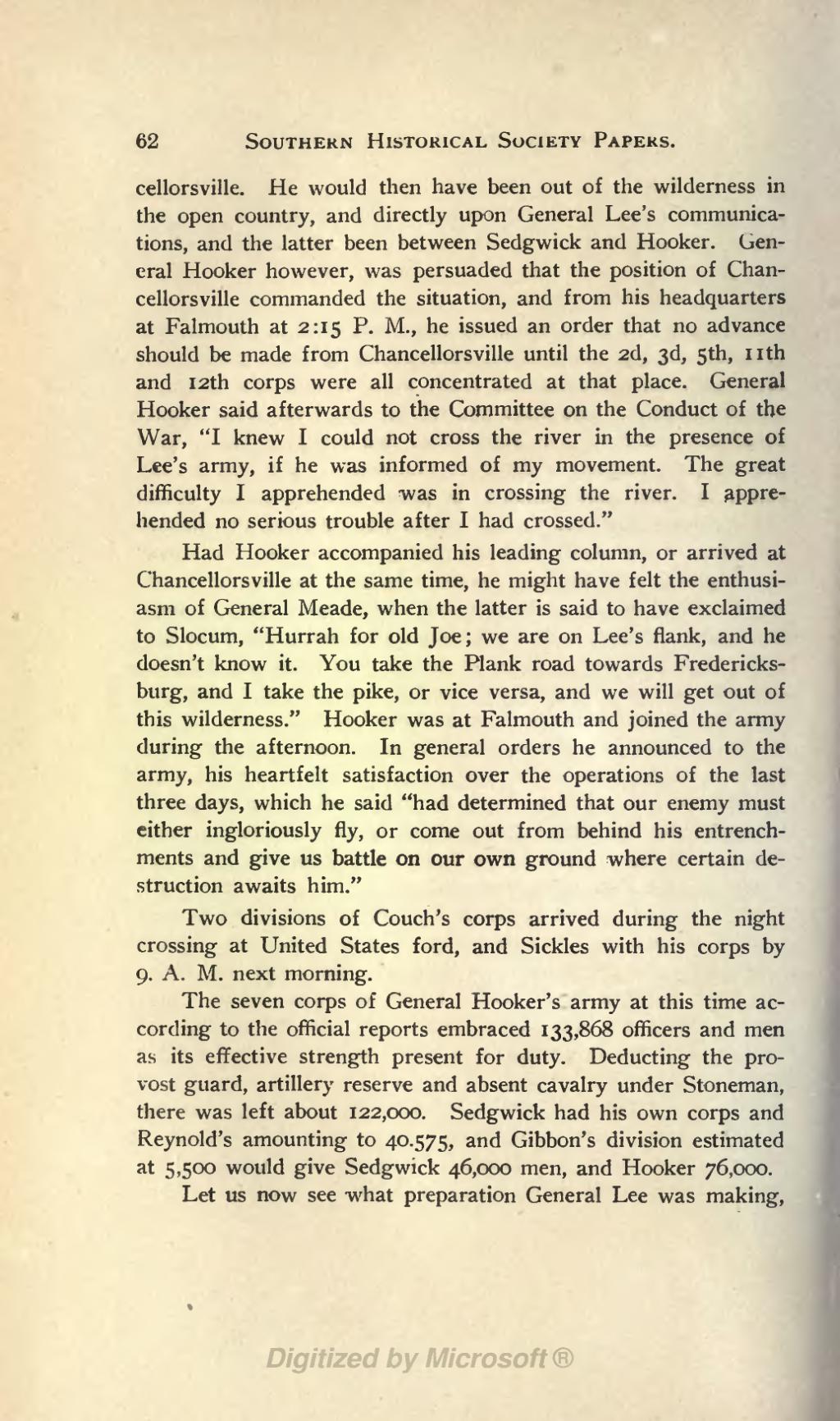cellorsville. He would then have been out of the wilderness in the open country, and directly upon General Lee's communications, and the latter been between Sedgwick and Hooker. General Hooker however, was persuaded that the position of Chancellorsville commanded the situation, and from his headquarters at Falmouth at 2:15 P. M., he issued an order that no advance should be made from Chancellorsville until the 2d, 3d, 5th, 11th and 12th corps were all concentrated at that place. General Hooker said afterwards to the Committee on the Conduct of the War, "I knew I could not cross the river in the presence of Lee's army, if he was informed of my movement. The great difficulty I apprehended was in crossing the river. I apprehended no serious trouble after I had crossed."
Had Hooker accompanied his leading column, or arrived at Chancellorsville at the same time, he might have felt the enthusiasm of General Meade, when the latter is said to have exclaimed to Slocum, "Hurrah for old Joe; we are on Lee's flank, and he doesn't know it. You take the Plank road towards Fredericksburg, and I take the pike, or vice versa, and we will get out of this wilderness." Hooker was at Falmouth and joined the army during the afternoon. In general orders he announced to the army, his heartfelt satisfaction over the operations of the last three days, which he said "had determined that our enemy must either ingloriously fly, or come out from behind his entrenchments and give us battle on our own ground where certain destruction awaits him."
Two divisions of Couch's corps arrived during the night crossing at United States ford, and Sickles with his corps by 9 A. M. next morning.
The seven corps of General Hooker's army at this time according to the official reports embraced 133,868 officers and men as its effective strength present for duty. Deducting the provost guard, artillery reserve and absent cavalry under Stoneman, there was left about 122,000. Sedgwick had his own corps and Reynold's amounting to 40,575, and Gibbon's division estimated at 5,500 would give Sedgwick 46,000 men, and Hooker 76,000.
Let us now see what preparation General Lee was making,
